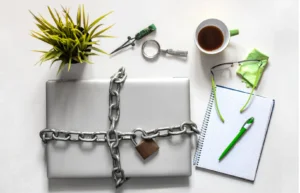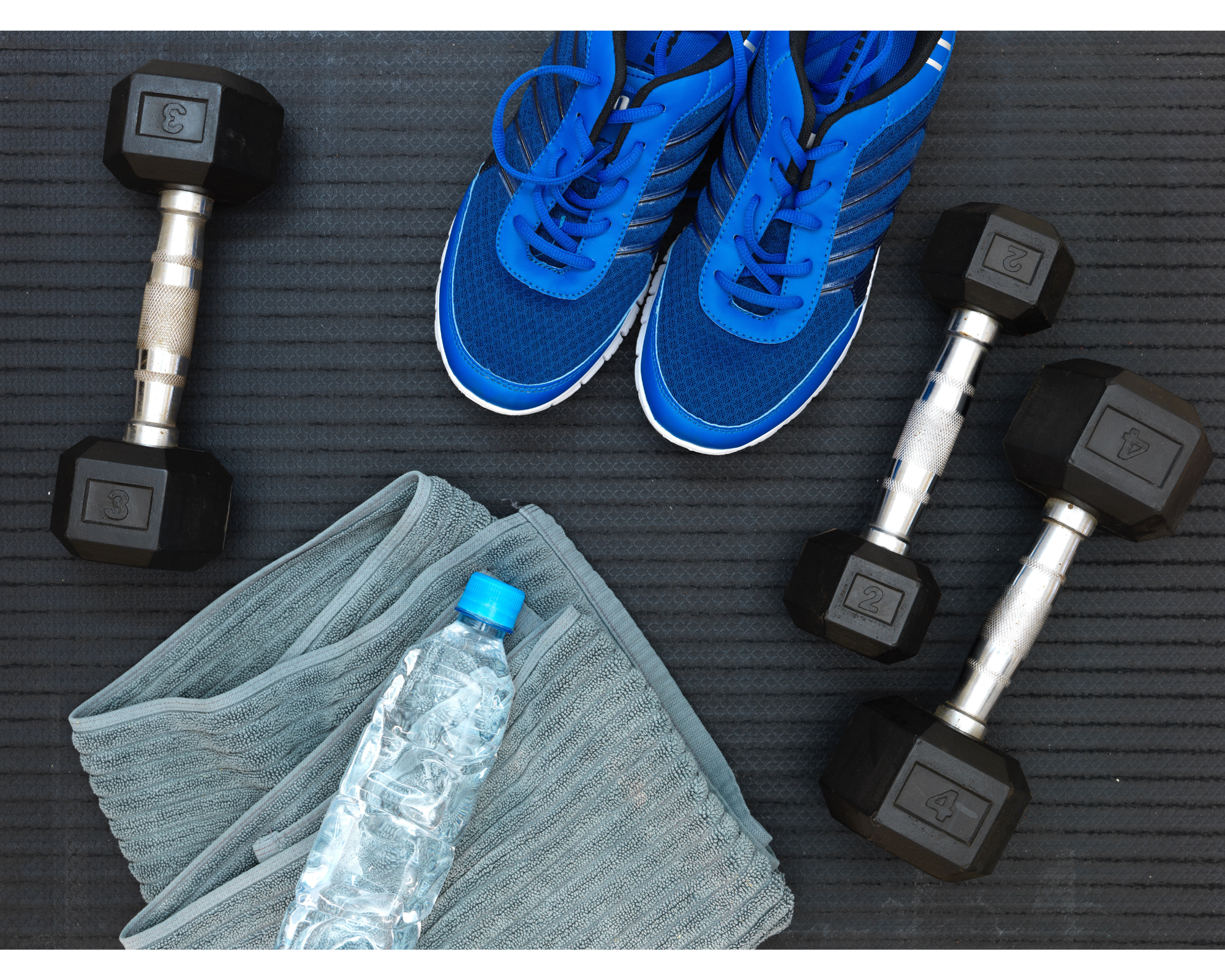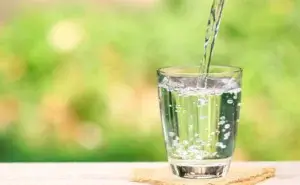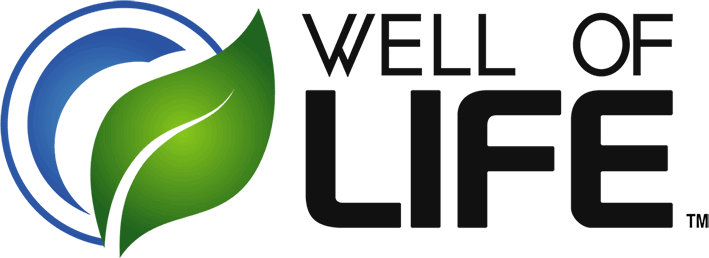
The Power of A Digital Detox: Revitalizing Your Life
The Power of A Digital Detox: Revitalizing Your Life A digital detox is needed now more than ever, as digital devices are our most valuable

How to Detox Your Body in 12 Simple Steps will help us adopt healthier habits and prioritize our well-being. One of the most talked-about practices to kickstart a healthier lifestyle is detoxification.
Detoxification is the process of ridding our bodies of accumulated toxins, which can come from various sources like the environment, processed foods, and even stress. While our bodies have their built-in detoxification systems, the demands of modern life and exposure to pollutants can sometimes overwhelm these natural processes. This is where incorporating natural detox techniques can play a significant role in supporting our bodies to function optimally.
Our goal is to provide you with evidence-based insights and practical tips to assist you on your journey to a healthier, happier you by learning the best ways to detox your body.

Detoxification, often referred to as “detox,” is the process of removing or neutralizing harmful toxins from the body. These toxins can come from various sources, including environmental pollutants, processed foods, medications, and metabolic waste produced by the body itself. Detoxification aims to support the body’s natural ability to eliminate harmful substances and promote overall health and well-being.
The human body has built-in detoxification systems to naturally detox the body, primarily involving the liver, kidneys, lungs, skin, and intestines. These organs work together to process and eliminate toxins through sweat, urine, feces, and exhaled air. However, in modern times, due to the increased exposure to toxins and unhealthy lifestyles, some believe that the body may benefit from additional support to optimize its detoxification processes.
Water is an essential substance to the human body, not only to quench our thirst! It is responsible for lubricating joints, regulating body temperatures, and removing toxins from the body.
Water helps flush out toxins from the body through the kidneys, urinary system, and sweat glands. By drinking sufficient amounts of water, waste products will be diluted and transported out of the body more efficiently. Water is an essential component of cells, tissues, and organs, maintaining their proper structure and function.
Increasing your daily water intake is one of the best ways to detox your body. According to the Mayo Clinic1 and Harvard Health2, the average daily water intake for healthy adults is about 15.5 cups (3.7 liters) for men and 11.5 cups (2.7 liters) for women.

Adequate sleep is essential for supporting your body’s health and natural detoxification system. Sleeping allows your brain to reorganize and replenish itself while also eliminating hazardous waste byproducts that accumulate throughout the day. One of these waste products is beta-amyloid, a protein that leads to Alzheimer’s disease.
Because your body does not have time to accomplish such activities while you are sleep-deprived, toxins can accumulate and negatively impact numerous elements of your health.
Sleep deprivation and chronic fatigue have been linked to both short- and long-term health repercussions, including stress, anxiety, high blood pressure, heart disease, type 2 diabetes, and obesity.
The recommended amount of quality sleep varies based on age, individual needs, and overall health. The National Sleep Foundation provides general sleep duration guidelines that are typically appropriate for different age groups.
Newborns (0-3 months): 14-17 hours per day
Infants (4-11 months): 12-15 hours per day
Toddlers (1-2 years): 11-14 hours per day
Preschoolers (3-5 years): 10-13 hours per day
School-age children (6-13 years): 9-11 hours per day
Teenagers (14-17 years): 8-10 hours per day
Young adults (18-25 years): 7-9 hours per day
Adults (26-64 years): 7-9 hours per day
Older adults (65+ years): 7-8 hours per day
3. Healthy Detox DietsThere are many detoxification diets because there is no single “detox” diet that universally applies to everyone, adopting a balanced and healthy eating pattern and incorporating nutritious whole foods is the best way to detox your body and support your body’s natural detoxification processes.
Here’s a general guide to a diet that can aid detoxification:
Whole Foods: Base your diet on whole, unprocessed foods. Include a variety of fruits, vegetables, whole grains, lean proteins, and healthy fats.
Plenty of Fiber: Fiber-rich foods support digestive health and regular bowel movements, aiding in the elimination of waste. Include fruits, vegetables, whole grains, legumes, nuts, and seeds.
Lean Proteins: Include sources of lean protein, such as poultry, fish, tofu, legumes, and beans, to provide amino acids necessary for detoxification processes.
Colorful Fruits and Vegetables: These are rich in antioxidants, vitamins, and minerals that support the body’s defense against oxidative stress and help eliminate harmful substances.
Cruciferous Vegetables: Broccoli, cabbage, cauliflower, and Brussels sprouts contain compounds that support liver function and detoxification pathways.
Healthy Fats: Include sources of healthy fats, like avocados, nuts, seeds, and olive oil, which provide essential fatty acids that aid in cellular health.
Moderate Portions: Avoid overeating and focus on portion control to support digestion and metabolic processes.
Probiotic-Rich Foods: Foods rich in prebiotics like yogurt, kefir, sauerkraut, and kimchi contain beneficial bacteria that promote gut health, aiding digestion and overall well-being. Natural detoxification and your immune system work hand in hand, by supporting your immune system with prebiotics, you will support your body to naturally detox. Good food sources of prebiotics include tomatoes, artichokes, bananas, asparagus, onions, garlic, and oats
Including foods like chia seeds and very fiber-sprouted flax seeds, which are abundant in omega-3 fatty acids. They are both excellent at absorbing toxins and make a delightful addition to a morning smoothie.
Apple cider vinegar is also a wonderful addition to your kitchen. It’s wonderful for balancing your PH levels and is simple to sprinkle on your salad for an added probiotic boost.
Keeping lemons in your fridge is a great detox tip too. A few slices added to a glass of water in the morning is a pleasant way to stimulate the liver and flush out toxins.
Apples are a delightful way to cleanse the colon since they are high in pectin, a form of soluble fiber that binds to fatty compounds in the digestive tract as well as toxins. Avocados are surprisingly fibrous and high in magnesium (which relaxes muscles) and potassium (which helps flush out toxins!).
Take antioxidants! Antioxidants are substances that neutralize free radicals, thereby preventing oxidative stress. Consume a lot of antioxidant-rich foods including beans, berries, artichokes, cherries, walnuts, and leafy greens.
4. Avoid Processed Foods, Sugars, and Alcohol
Processed foods often contain additives, preservatives, artificial colors, flavors, and chemicals that your body may not need and could potentially stress detoxification organs. Many processed foods contain unhealthy trans fats, saturated fats, and refined vegetable oils that can contribute to inflammation and negatively impact pathways that your body may need to detox.
Processed foods are frequently high in added sugars and refined carbohydrates, which can lead to spikes in blood sugar levels, inflammation, and stress on the liver. The liver metabolizes sugar, and overconsumption can lead to fatty liver and other metabolic issues.
Excessive sugar intake can lead to chronic inflammation in the body. Inflammation can hinder the body’s ability to detoxify properly and contribute to various health issues.
Excessive alcohol and caffeine intake can strain your liver and kidneys. Moderation is key. The liver is a central organ in detoxification, breaking down, and eliminating toxins from the body. Alcohol is metabolized by the liver, and excessive alcohol consumption can overwhelm its detoxification capacity, potentially leading to liver damage and impaired function.
 5. Incorporate Green Tea
5. Incorporate Green TeaThe term “green tea detox diet” generally refers to a dietary approach that includes consuming green tea as part of a detoxification or weight loss plan. While green tea is known for its potential health benefits, it’s important to approach any diet with caution and consider its effectiveness and safety.
Green tea is rich in antioxidants called catechins, particularly epigallocatechin gallate (EGCG), which have been studied for their potential to support metabolism, boost antioxidant activity, and offer various health benefits.
Staying active through regular exercise can play a significant role in supporting your body’s natural detoxification processes. Exercise has various benefits that contribute to your overall health and wellness space, including detoxification.
Choose Activities You Enjoy: Engage in physical activities that you find enjoyable and sustainable, whether it’s walking, jogging, swimming, cycling, dancing, or any other form of exercise.
Consistency: Aim for regular physical activity. Consistency is key to reaping the long-term benefits of exercise for detoxification and overall health.
Variety: Include a mix of aerobic exercise, strength training, and flexibility exercises to target different aspects of fitness and support various bodily functions.
Stay Hydrated: Remember to drink plenty of water before, during, and after exercise to stay hydrated and aid in detoxification through sweat.
Listen to Your Body: Pay attention to your body’s signals. If you’re new to exercise or have any health concerns, consult a healthcare professional before starting a new exercise routine.

Sunlight can have several beneficial benefits on detoxification and overall health, largely via influencing vitamin D production and other physiological processes.
Sunlight is a natural source of ultraviolet B (UVB) rays, which stimulate the production of vitamin D in the skin. Vitamin D is required for a variety of body functions, including immune system support, inflammation regulation, and detoxification.
8. Avoid Stress and Promote Relaxation
Promoting relaxation and avoiding stress are important aspects of maintaining overall well-being and supporting detoxification processes in the body. Chronic stress can have negative effects on various physiological systems, including the digestive and immune systems, which can impact the body’s ability to detoxify effectively for optimum health.
Eliminating or reducing exposure to environmental toxins is an important aspect of supporting your body’s natural detoxification processes.
Turmeric is a well-known anti-inflammatory root that also aids in circulation, pain relief, cancer prevention, and liver detoxification by raising glutathione levels4. Stock up on sulfur-rich garlic, anti-viral ginger, and antioxidant-rich herbs such as thyme, rosemary, and others.
Turmeric: Contains curcumin, a powerful antioxidant that may have anti-inflammatory and liver-protective effects. It’s commonly used to support liver function. Read more information regarding the benefits of Turmeric here.
Ginger: Known for its anti-inflammatory and digestive benefits, ginger can help stimulate digestion and support detoxification pathways.
Garlic: Contains sulfur compounds that support liver enzymes and detoxification processes. It also has immune-boosting properties.
Cilantro: Often used in detox diets, cilantro may help bind to heavy metals and aid their elimination from the body.
Dandelion Root: Supports liver function and digestion by promoting bile production and aiding in the elimination of waste.
Milk Thistle: Contains silymarin, a compound that has been studied for its potential to protect the liver from toxins and support its regeneration.
Peppermint: Can help soothe the digestive system and support healthy bile production, which aids in digestion and detoxification.
Rosemary: Rich in antioxidants, rosemary may help neutralize free radicals and support liver function.
Fennel: Supports digestion and helps reduce bloating, promoting healthy elimination and detoxification.
Coriander: Similar to cilantro, coriander may help support the body’s ability to eliminate heavy metals.
Nettle: Has diuretic properties that can support kidney function and promote the elimination of waste products.
Green Tea: Contains catechins, antioxidants that may support the body’s detoxification processes.
Cayenne Pepper: May help improve circulation and stimulate digestion, supporting the body’s natural detoxification pathways.
Lemon Balm: Supports digestion and relaxation, which can indirectly contribute to detoxification by reducing stress.
Burdock Root: Known for its diuretic properties, burdock root may help support kidney function and promote the elimination of waste.
Thyme: Contains antioxidants and compounds that support liver health and overall immune function.
Digestive enzymes play a crucial role in breaking down food into smaller molecules that can be absorbed by the body. While they primarily support digestion, some enzymes can indirectly contribute to detoxification by improving nutrient absorption and overall gut health.
Consume fermented foods like yogurt, kefir, sauerkraut, kimchi, and kombucha contain beneficial bacteria that support gut health and digestion.
Consider Digestive Enzyme Supplements to support your body’s natural detox system. The Well of Life’s Digestive Enzymes with Makzyme-Pro® Blend is a combination of enzymes and probiotics that supports digestive health and ensures nutrients are delivered to the body.

A highly recommended Chlorella supplement for daily Chlorella intake is The Well of Life’s Chlorella Broken Cell Wall Algae. This superfood is rich in phytonutrients, amino acids, beta-carotene, potassium, phosphorous, biotin, magnesium, and the B-complex vitamins.
We are told to eat more leafy green vegetables for good health, but sometimes it can be difficult to get the 5–7 servings of vegetables a day recommended by nutritionists and functional medicine doctors, however, the Well of Life’s chlorella broken cell algae vitamin can help you follow this recommendation daily!
More information on Chlorella and its benefits in complementary and integrative health can be found here.

Detoxification primarily involves toxin elimination and the removal of waste products from the body. While the body’s detoxification system involves multiple organs working together, certain organs play a more prominent role in this process.
Here are the key organs that benefit from a detox:
1. Liver: The liver is the primary detoxification organ in the body. It processes and neutralizes toxins, drugs, and metabolic waste, making them less harmful and easier for the body to eliminate. The liver converts many toxins into water-soluble compounds, furthermore, the compounds are then excreted through urine or bile. Liver enzymes are proteins that facilitate these detoxification reactions to flush toxins from the body safely. A liver detox helps the liver eliminate toxins and improve its overall function.
2. Kidney: The kidneys filter waste products, toxins, and excess substances from the blood to form urine. They play a crucial role in eliminating water-soluble toxins and maintaining the body’s fluid and electrolyte balance.
3. Lungs: The lungs are responsible for expelling gaseous waste, such as carbon dioxide, from the body through exhaled air. Deep breathing and adequate ventilation support lung detoxification.
4. Intestines: The intestines help eliminate waste and toxins from the body through bowel movements, mostly eliminating processed foods. The gut also houses beneficial bacteria that aid in detoxification and nutrient absorption.
5. Skin: The skin is the body’s largest organ and an essential player in detoxification through sweating. Sweating helps release toxins like heavy metals and certain chemicals from the body.
6. Lymphatic System: The lymphatic system is a network of vessels, nodes, and organs that assist in draining waste products and toxins from body tissues. It plays a vital role in immune function and detoxification.
7. Colon: The colon is the final part of the digestive system, and its proper function is crucial for eliminating waste and toxins through regular bowel movements.
8. Lymph Nodes: Lymph nodes filter and remove toxins and waste from the lymphatic fluid before it is returned to the bloodstream.
By supporting these key organs in their natural detoxification functions, the body can efficiently eliminate harmful substances and maintain optimal health. Natural detox techniques, such as a balanced diet, hydration, exercise, and stress management, can play a significant role in supporting these organs and promoting overall well-being.
Parasites are organisms that live on or within another organism (the host) and obtain nutrients from the host at the host’s expense. “Parasite cleanse” refers to a set of practices or treatments that are purportedly designed to rid the body of parasites.
Some various methods and products are marketed as parasite cleanses, including dietary changes, herbal supplements, and other natural remedies.
While the idea of detoxification has gained popularity, it’s crucial to approach it with a balanced and informed perspective.
Detoxing, when approached responsibly, can serve as a reminder of the significance of mindful choices in our daily lives. Our bodies possess remarkable natural mechanisms for eliminating toxins, a testament to the intricate balance and resilience of our physiology. Rather than seeking quick fixes or extreme methods, we can better support our bodies by adopting sustainable habits in 12 simple steps.
The importance of detoxing lies not only in the potential benefits it offers but also in the broader lessons it teaches. It highlights the power of nutrition, hydration, exercise, stress management, and restful sleep – fundamental pillars that underpin our overall well-being. As we navigate the modern world filled with environmental pollutants and processed foods, these practices become even more relevant.

The Power of A Digital Detox: Revitalizing Your Life A digital detox is needed now more than ever, as digital devices are our most valuable

The Role of Chlorine Dioxide in Holistic Healing: Alternative Therapies Chlorine dioxide (CDS), also known as the miracle solution, has been underestimated for many years.

A vertigo dizziness remedy can be difficult to find as vertigo can be an unsettling experience. This often leads to a spinning sensation and feeling

The Ultimate Collagen Facial Routine: Natural Ways to Fight Wrinkles A radiant, youthful complexion starts with collagen, the essential protein that gives your skin firmness

Herbal Remedy: Tinnitus Solutions for Lasting Relief Herbal remedy tinnitus approaches are still popular, providing a natural treatment to treat tinnitus. Millions worldwide suffer from

The Benefits of Ginseng: A Rooted Tradition for Modern Wellness People have used ginseng for years as one of nature’s most excellent herbal treatments. This
Copyright © Jonathan Otto DBA Captivate Culture LLC – All Rights Reserved – This product is not for use by or sale to persons under the age of 18. This product should be used only as directed on the label. It should not be used if you are pregnant or nursing. Consult with a physician before use if you have a serious medical condition or use prescription medications. A Doctor’s advice should be sought before using this and any supplemental dietary product. All trademarks and copyrights are property of their respective owners and are not affiliated with nor do they endorse this product. These statements have not been evaluated by the FDA. This product is not intended to diagnose, treat, cure or prevent any disease. Individual weight loss results will vary. By using this site, you agree to follow the Privacy Policy and all Terms & Conditions printed on this site. Void Where Prohibited by Law.


This website or its third-party tools use cookies, which are necessary for its functioning and required to achieve the purposes illustrated in the cookie policy. You accept the use of cookies by closing or dismissing this notice, by clicking a link or button or by continuing to browse otherwise.
13 thoughts on “How to Detox Your Body in 12 Simple Steps”
Can you do the Lymph drainage I saw on your podcast, while doing a heavy metals and mold detox please. Thank you, Cindy.
Hi Cindy! Please see our recent article on “Lymphatic Drainage“.
According to Ari Whitten, (The Energy Blueprint) it is better to take shallow breaths, to get rested, rather than deep breaths. Wherein lies the contradiction?
The idea of taking shallow breaths versus deep breaths depends on the context and your current physiological state. Both shallow and deep breathing can be beneficial in different situations, and there isn’t necessarily a contradiction between them; rather, it’s about using the right type of breathing for the right circumstance. Shallow breathing can be useful in situations where you need to be alert and respond quickly to stressors, such as during intense physical activity or when you need to stay vigilant. Where as, deep breathing is often recommended for relaxation, stress management, and improving overall lung function.
Hi Lori,
Thankyou for such a comprehensive detox article..It was a great check-list for how I’m doing diet-wise ( good overall as I’ve been vegan for 30 years) but room for improvement on the sleep front).You’ve also reminded me to have a course of Chorella.We’ve got a couple of good makes here in the UK, and I first tried it after one of Dr Ealy’s Q&As.Amazing stuff!
We’re having a lot of low atmospheric pressure weather systems here this summer, and I find them draining.Chorella will help with the annoying tiredness I’m sure.
Thankyou for all you’re doing to help people.
Angela
How often can one clean the colon
It really depends on what is happening in the colon. If you are eating a healthy diet that consists mainly of fruit and veggies, have good amounts of clean water, limit animal products, limit good oils, cut out processed sugars and food, cut out bad oils, cut out dairy and cut out gluten, your colon is being cleaned all the time. If you have the standard American diet then probably on a more regular basis and at least do a colon cleanse every second month for 1 month at a time.
Can you recommend a Parasite Cleanse?
thank you
andrea adler
Hi Andrea, Yes! We highly recommend The Well of Life’s ParaPurify with Mimosa Pudica Seeds. For more information please have a look at our “How to Detox Your Body in 12 Simple Steps“.
Sounds good – and do you already know if the spike protein is really replicating in the body and if you really can stop this through urotherapy & fasting? With good diet & Excercise and so on???
Hello Urs, We are not sure about the replication of the spike protein but what you can do is work on your health so that it is not able to take hold of you. I do believe that with the right health and lifestyle and using natural products like urine, you can have your health. 3 Day water fasting is great for you but make sure that you get into it gradually and make sure that your water has a good pH (7.9) and that the TDS (total dissolvable salts) are very high. I would recommend that you add in your own minerals and I use a pure and unprocessed salt in my water. Unprocessed salt has over 70 minerals in it that your body needs to thrive and survive.
In what order should I detox —–
Parasites
Colon
Heavy Metals
Liver
Thanks
Hi Ann. Start with the colon so that the pathways start to open up and at the same time you can also do a gentle liver cleanse with simply having good nourishment with clean healthy fruit and vegetables. Once you feel that you have done a great clean and the liver is working again, you can then start with the parasite and the heavy metal cleanse.